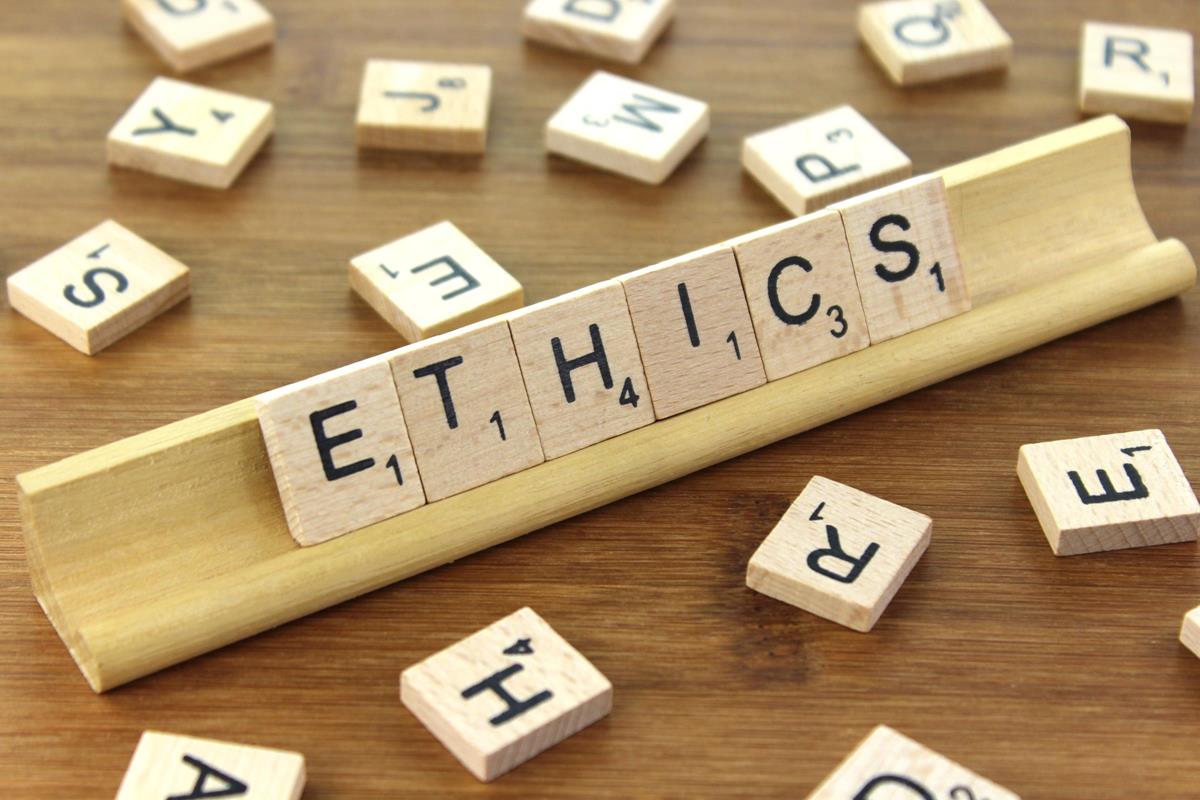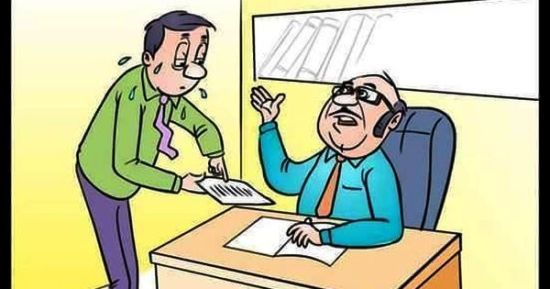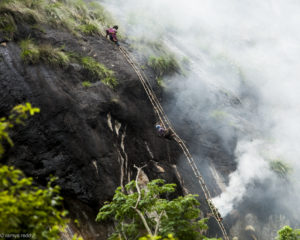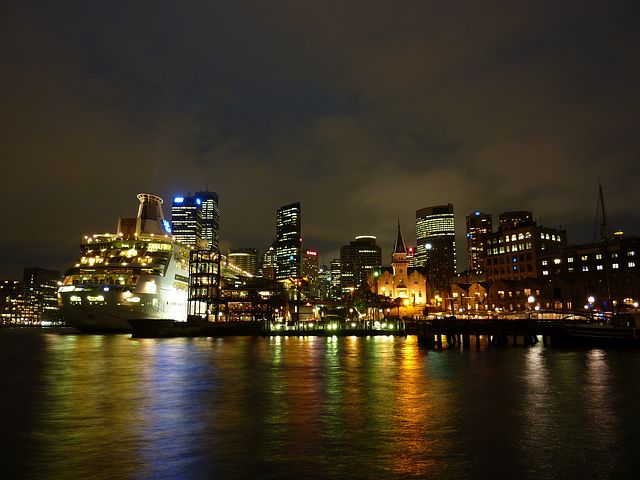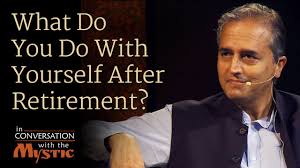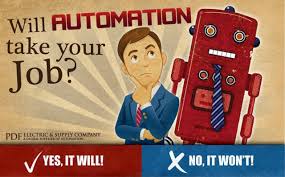The recent scandals in the world of business, as for instance, with Enron, WorldCom, Global Crossing and Satyam , Volkswagen, have kindled a debate on ethics in business and personal ethics of businessmen and managers.
Responsible Business Practices and Corporate Ethics for Indian Corporate Sector
The Lockheed scandal- in 1972,
Ethical Relativism
Subrat Bagchi's video discussion
Speaker A.N Mishra
Good practices- value addition.
Can Business Be Run Ethically At All
Speaker G.C.Pati
Case Studies and Analysis of Ethical Issues- The case of dying fish.
This case study was given to 4 managers on how they will act:
Consequentialism or Utilitarianism
Some Interesting Case Studies On Consequentialism-Dilema-1
Dilema-2
Points man-Railway track having two movable rails and necessary connections, used to turn a train from one track to another or to store rolling stock.


Dilema-3
Dilema-4
The Moral Dilemas Revisited
Tata Steel: Responsible Policies Progressively Realized
The Adani Group: Lack of Government Oversight Enables Violations of Corporate Policy
- The trouble about ethical problems that managers confront in real life is that they are in the nature of dilemmas, and rarely have a clear cut solution.
- What is right and ethical depends so much on the situation, on the persons involved and in your own values that generalization seem to be difficult.
- There can be no 'the best' or the right solutions, there can only be a 'what is the best or right under the circumstances' solution.
- The worst thing is, the solutions cannot be found in a book, you have to figure them out yourself.
- So each organizations develops a distinct identity or character over a period of time.
- Some are good and trustworthy companies, others are not. These perceptions are shaped by the company's actions in the past, from the responses it has made at its defining moments.
- The foremost among these is the development of trust, which is a valuable business asset.
- BEING ETHICAL GENERATES TRUST- Trust acts as an invisible cost reducer. It reduces what is called transaction costs.
- A simple example of a transaction cost is the need to draw up elaborate contracts involving large costs by way of fees to lawyers and the time of management.
- Much of the terms of these contracts refer to what to do in situations when one of the parties does not act the way it is expected to(just in case).
- Then there are costs of enforcement in courts of law.
- A relationship based on trust, on the other hand, does not need such elaborate contracts. If the parties abide by terms of contract, the trust is justified and the next round is still easier.
- Companies like TATA & Infosys inspire tremendous trust.
- The case of the Angadias- the institution of Angadias(local couriers) is an excellent example of trust-reducing transaction costs.
- These small time couriers, especially in Gujrat and Mumbai, carry large amounts of cash, jewelry, precious metals in person for delivery, with no documents other than scribbled notes.
- The system is incredibly cheap and reliable and works entirely on trust. The notorious Hawala transactions operate on the same principle.
- Interestingly, the criminal world seems to depend more on trust than the civil world.
- Generally there would be unanimous agreement that bribing is not a good practice. But sometimes it becomes hard to pronounce a clear judgment.
- The executives of the aircraft manufacturing firm Lockheed Corporation USA, badly needed orders since the company was in dire straits. There was a prospective order.
- The order was hotly contested by all leading airplane manufacturers.
- The trouble was that it was conveyed to the Lockheed manager who in his discussion on the deal, had agreed that a substantial bribe needed to be paid to get the order. Other airlines were willing to do it.
- If the order was not secured, there was a strong possibility of Lockheed Corporation going bankrupt, affecting its shareholders and throwing a large number of employees out of work. What should the manager do?
- This difficult situation was indeed faced, and apart from the ethical aspects, it was also illegal to participate in such bribing, as per US law.
- But if he refused to bribe, would he be shirking his duty towards the organization, to its shareholders and employees? Would he be responsible for the resultant loss of jobs, and shareholders loosing their savings?
- This illustration also brings up another issue. Are the standards of ethics the same in all societies? doing business?
- This brings another term 'ethical relativism' into consideration.
- From this perspective, all ethical standards are relative, that is they are products of the culture of the region or country. What is ethical in one country or one society may be considered unethical in another country or society.
- E.g. among Eskimos, when a person becomes very old and a burden on others, when he can no longer hunt, cook or do anything productive, it is considered perfectly ethical to send him away to die.( Actually, the old person tells others that he is going hunting. Everyone knows what that is, and no one objects or tries to dissuade him). In this society resources are scarce and there is not much scope for supporting redundant persons.
- Yet in China and India if anyone does the same thing, it would be considered despicable and inhuman.
- It is the same with regard to bribery, gambling, cheating or bluffing. For e.g. in Muslim countries gambling and drinking are considered sinful whereas in others they may not.
- Though many actions and norms are indeed relative, there are some acts that are considered universally right or wrong. These may be called categorical imperatives. For e.g. helping an accident victim or a person in distress is probably considered the right thing to do irrespective of the society you live in.
- How do we relate to integrity? 4 things are needed?
- Follow the law- follow the law where law exists both within & outside the country.
- Sometimes some laws are not comfortable. We can protest in various forums like media, court of law but we should follow it and not cherry pick(pick & choose).
- Where the law does not exist, we should use fair judgment.
- There are times when law does not exist and we ourselves are not sure what is fair, here best thing to do is to seek help from a trusted friend, spouse who do not have a stake in this.
- One should keep in mind that our private act should not cause embarrassment to their near and dear ones when it comes to public.
- Corruption or unethical practices have become so common that people do not even raise eye brows.
- A son one day tells his dad that "I have decided to start organized crime. To this his dad replies, is it Govt. or Private?
- In old films we usually found the zamindar was the villain but in today's film we find the politicians in nexus with criminals.
- We as corporate leaders have also not behaved as it should be. E.g..- Volkswagen emission case.
- Though corruption has been there from the beginning of civilization but one cannot draw consolation from that. There is a correlation between ethical practices & brand value creation.
- Article in Reader's Digest- What did Mahatma do on his last day( 30th Jan)- He was looking into a letter written to him that the congress had become so corrupt that the Britishers were better.
- Practices of East India Company- Survived for long because of their good practices(273yrs).
- Robert Clive was charged by the company for amassing fortune. When he was tried he said that" the Indian kings were opening their chests for me not to attack their fort, so I am very moderate regarding amassing wealth as per your charges. Warren Hastings was also tried in the queens court for corruption.
- However good an institution it degenerates with time. Order gives way to disorder. Same happened with East India company.
- During the Bengal flood, 1/3rd people were wiped out. Land which could have been used to grow food grains grew opium instead as it was more profitable.
- So whatever action we take we should keep in mind that whether it will be good for the society.
- E.g.: Nike was charged for using child labor.
- Also carpet industry in Kashmir did the same. Satyarthi fought against this injustice.
- Walmart was charged for importing cheap clothes from Bangladesh were working condition was sub-human.
- So ethics has a much wider connotation.
- What is the business of business?
- Is it only value for share holders?
- Is it also value for state?
- Balance your profit with social responsibility.
- We need Ethical leaders.
- So don't say,I did it in the interest of the company or this is the norm of the day.
- No one of course, says openly that he runs a business unethically.
- But statements such as 'business is after all business' reflect a mindset that shows that, to put it mildly, ethical considerations take a backseat in relation to business.
- In a hypercompetitive world, it may be argued, while others are not acting ethically, how can you do so?
- For e.g. a businessman may say, 'if my competitors are not using anti- pollution measures and are discharging their effluents into rivers, though I know this is unethical, I have to follow suit, if I install anti-pollution measures, it may push my costs up and I shall no longer be competitive'. It is the same when talking about tax evasion.
- Greatest danger in society is to stay mute.
- "Truth is good, if somebody else does it for truth it is even better. Are you a martyr to want to go to the gallows, Hold your tongue".
- Well, if we stay this way, your company sooner or later will make headlines for the wrong reasons.
- Role of Govt. in ensuring ethics in corporate world:
- There are willful defaulters violating environmental laws, land use violation etc.
- Natural resources are illegally procured and sold to evade tax.
- Sooner or later the company will face consequences.
- Business should be based on sound economic basis- short term availability of resources and cheap labor should not be the reason to start any business. This will not last for long.
- Concern for all stake holders.
- Strict compliance to law.
- Learning better practices should be part of KPI & management review.
- Violations should be strictly dealt with.
- Govt. should create a separate judicial system to settle such issues.
- Consider the following example which shows how reasoning can be applied to such a problem-
- Zuari Agrochemical was a Birla group company that set up a fertilizer plant in the ecologically sensitive coast of Goa in 1970. At the time, India was grappling with the problem of acute shortage of fertilizers, affecting food production. Import was also difficult. Hence the fertilizer plant set up served a vital national need.
- The plant went into production in June 1973. The effluents were discharged into the sea at a distance from the coast. In September,1973, it was reported that the incidence of dead fish from the sea in the vicinity of the discharge from the plant was higher than usual.
- The company claimed that its effluents were within the norms for pollution set by the govt. Increase in the incidence of dead fish could have been due to many reasons, including natural oceanic phenomena. different committees set up by the govt. came up with different results.
- Soon the company faced a problem on another front. Its ammonia effluents were discharged into a reservoir. In 1974, the villagers around the reservoir and surrounding the factory alleged that there was seepage from these tanks resulting in damage to the soil, to the crops, to their drinking water sources. The company again denied that it had anything to do with the problem, but offered to assist the villagers with drinking water. However the villagers wanted closure of the plant.
- There were better ways to control pollution more effectively, but these involved the installation of additional equipment that was quite expensive. The cost of the fertilizers produced would increase, imposing a general cost on the economy.
- MANAGER - 1- if we install the best pollution control devices available, the damage to the fish and the seepage problem could probably be contained. But then it may not, because the death of the fish could be due to various oceanic phenomena( as suggested in one report).
- Again the farmers could be agitating simply to get some compensation from the company. We could negotiate with the farmers and fishermen and could compensate them for damages but then the demands would simply escalate.
- One sure outcome of all these would be an increase in the costs of fertilizers to be produced. Closure would aggravate the fertilizer shortage in the country, with consequences for food production, and would affect a large number of people.
- Hence I would go by the principal of the greatest good for the greatest number. This clearly is not served by closing the plant. Hence I will urge the govt. to put down the protests as benefit to the consumers of fertilizers and food is far greater than the damage to farmers and fishermen. If any real damage is proved we will compensate them.
- MANAGER - 2- Serving the stockholders is my primary duty. I might also look at my duties towards others- my employees, my customers and the community.
- If I install the pollution control devices, surely my shareholders would be effected.
- If I close down the plant, the shareholders, the employers( many from village also) and the farmers in the country who need fertilizers will be affected.
- If I do nothing, the community will be affected. Though I have duties to all the above, my primary duty is to shareholders, then to my employees, and then to my consumers. Hence my decision is to do nothing.
- MANAGER - 3- As the manager of this plant, it is not enough for me to confront the economic consequences which is a narrow concept of duty. I have certain moral obligations that are absolute. Depriving any group of people of their livelihood is wrong. On the other hand, the people who may benefit are uncertain, after all, the govt. or the company itself could set up another fertilizer plant somewhere else.
- Hence I shall do whatever is needed to eliminate the damages caused to the environment, even though it may lead to increase in costs. I also do not presume that the farmers and fishermen are unreasonable and would continue to agitate, because they also have a sense of moral values.
- I would take such steps as to make sure that the factory has, at the very least, an impact that is neutral, that is no one is worse off as a result of this plant.
- Each of the above 3 processes of reasoning introduces us to 3 different types of ethical reasoning.
- Consequentialism, which focuses on consequences.
- In terms of duties and obligations and their prioritization
- A set of categorical imperatives.
- Also called maximization of profit approach. This theory aims for the greatest good for the largest number. Problem- completely neglects the aspect of justice. Any degree of injustice to a minority is acceptable if it improves the welfare of the majority.
- Imagine a causality ward in a hospital. 3 emergency victims are brought in. They will surely die unless some organs are quickly transplanted. One needs a liver, the second both kidneys, and the third, a heart transplant. These organs are not available readily, but immediate surgery is essential for all 3 to survive.
- There is a patient waiting for consultation in the outpatient ward for common cold. A nurse has a bright idea. Why not kill this person, take out his organ and transplant them to the 3 patients? After all only one man dies, but 3 lives are saved.
- Most of us will think it as a bizarre idea but in purely consequential terms, her reasoning is justified.
- There is a railway station has a platform line( a loop line ) and a straight line ( a main line ). the points are usually set to the loop line since trains usually stop at this station. It is time for the train to arrive, and in fact it has arrived just before the points. A points man is operating the points.
- Just ahead of the points, there are 3 people who are walking on the loop line. They are fully aware that the train is about to come any moment and will come on this line, but are not aware that it has already arrived very close and that their lives are in danger.
- There is one man walking on the main line, fully aware that trains do not come that way, and thinks he is safe. He is also unaware of the approaching train. The driver tries to operate the whistle, but discovers that it is not working.
- The points man has the option of switching the points to the main line quickly, killing the one person walking on the main line and saving the other 3 who are walking on the loop line. Should he do so?
- Here too like the previous example, few would vote for switching the points to the main line, even though such a switching would involve saving the lives of 3 people while sacrificing only one.
- If there would have been 40 people in the loop line rather than 3, many more would approve of the switching.
- The majority however would not feel that it is ethical to save the lives of 3 and sacrifice that of one in this case. Though such people cannot give a reason, but they have employed a reasoning based not on utility but justice at its core.
- There is a boat which is crossing a turbulent river in the monsoon season. It is carrying 40 people instead of its capacity of 30. Suddenly, midstream, the boat develops a leak. But it can be saved if 10 people are pushed into the river. They will be chosen at random and once pushed death is certain. If this is not done, almost surely the boat will sink, and all forty lives would be lost.
- If they are not, as happens in the famous scene in the film 'the titanic', you feel a sense of outrage ( in this scene the ship will sink soon, and the number of lifeboats available on board is not enough. So the deck class passengers are locked up and left to drown to save the lives of higher class passengers.
- Suppose that in the example, the boat is not leaking and there is no danger to the boat, but 5 more people, swept in the river, grab the boat and implore to be taken into it. Not taking them would be sure death for all five, but taking them would put the entire forty, as well as the new five, at a high risk, indeed a near certainty of drowning.
- Here few would approve of taking the additional five. Here consequential and utilitarianism clearly operate in a context.
- Let us now revisit the accident victims, the outpatient and the nurse. Even though it may appear to be economically justified to kill one person and save why do most people feel it is wrong to kill the outpatient? Note that despite the reasoning they may offer later, people make their 1st judgment instinctively rather than logically.
- On reflection, many respondents may answer that such killing of one person is not acceptable because the victim is not given a choice in this matter. The victim is in no way responsible for the accident or the consequences and if he is killed unsuspectingly, his right as a human being is violated.
- But in the case of the boat, the ten persons selected at random are informed of the situation, and all are given an equal chance to survive. The survivors are not violating the right to life of the others( chosen to die) in any way.
- If five of them volunteer to jump off the boat, they forsake the rights, and there is no dilemma at all. It is the same with regard to the 5 caught up in the stream and requesting to enter the boat. While it would be nice to let them in, they have no right to be let in, while those in the boat have the right to be carried safely. Thus the letting in of the 5 violates the right of those in the boat.
- In all the examples above, it shows that despite not having any exposure to any theories of ethics, people do have a moral instinct.
- Tata's Odisha operations have entailed charges of illegal and excessive mining.
- Tata Steel was fined over 1 billion USD (6000 crore) for excessive mining in Odisha.
- Two years later in Odisha, Tata Steel allegedly conducted mining operations outside of its legally leased land.
- Tata's repeated charges of illegal and excessive mining exacerbate environmental damages that have degraded already suffering ecosystems. In 2007, the Sukinda Valley in Odisha was ranked the fourth most polluted place in the world.
- The state has India's largest reserves of chromite ore, the extraction of which has contaminated local groundwater with the deadly carcinogen hexavalent chromium, polluted soil, and led to the clearing of large swathes of forest.
- These environmental damages - made worse by excessive mining - have had grave health consequences for local populations. Roughly 84% of deaths in the Sukinda mining areas have been attributed to chromite-related diseases.
- There is some evidence that Tata's practices are improving over time, and aligning more closely with its responsible business policies.
- For instance, in 2015 Tata Steel commissioned a new steel plant in Kalinganagar, Odisha, despite decade long-protests, and began producing its first steel products in 2016.
- To ensure that the local community is positively impacted by this plant, Tata Steel reports that it has instituted a comprehensive rehabilitation and resettlement plan.
- The core of any resettlement and rehabilitation requires new housing and amenities for the displaced people. By its own account, Tata Steel claims to have met this requirement and gone beyond it with the company's parivar (family) concept.
- Tata Steel has also established a communications team that includes members of the local tribal community. And it reports that it has a grievance redress system that affected people can use to communicate their grievances to the company.
- If Tata Steel's assertions are correct, than the company's concrete grievance and redress policies seem likely to bring its business practices more in line.
- Most of Adani's violations are clustered in the Mundra Special Economic Zone between 2008 - 2014.
- Adani pursued aggressive expansion "to the detriment of the traditional livelihoods in the Mundra-Kutch region.
- Indeed, this economic growth has not benefitted local communities.
- The development of the Mundra port led to the displacement of 10,000 fisher folk - indicating Adani's failure to respect the interests of local stakeholders.
- Following drastic reforms in the 1990s, India's economic liberalization and deregulation brought with it a change in norms and rhetoric in the popular culture in India.
- The emergence of Special Economic Zones - regions in which corporations can bypass such critical regulations as Environmental Assessments - has allowed corporations like Adani even more room to circumvent or ignore policies that protect workers, communities, and the environment.
- Gautam Adani's close relationship with Prime Minister Narendra Modi, former Chief Minister of the Indian state of Gurjarat, appears to have insulated the Adani Group from strict oversight and allowed them diverse economic benefits.
- For example, many activists and scholars have claimed that Adani's acquisition of the land used for the Mundra Port was bought far below the market price, suggesting favoritism by the government.
